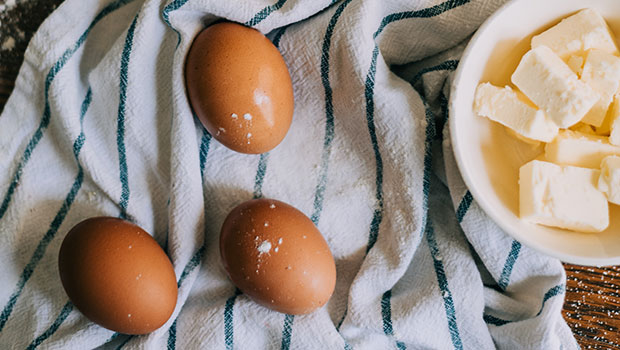From pantry staples such as eggs and flour to fresh fruit and vegetables, here’s where and how to store common food items.
Where in your fridge should you store things?
Keep ready-to-eat foods on the top and middle shelves of your fridge; raw meat, poultry and fish on the third shelf; and fruits, vegetables and salads in the vegetable drawers at the bottom.
Where should milk and dairy be stored?
“Milk should be stored at the back on the bottom shelf, where the fridge is coldest,” says CBC Canada, and not in the door, which is the warmest place in the fridge. Keep yoghurt, cream and soft cheese on the bottom shelf too. Wrap hard cheese in wax paper before storing in the fridge.
Keep butter in the fridge as well – we don’t care how Ouma did it. If you need to soften some for a recipe, take it out 30 minutes ahead of time.
Should I store my eggs in the fridge?
The best bet is to keep them in the colder part of the fridge at the back with the milk. Yes, in the supermarket, they’re kept in boxes on a shelf, but that’s because most supermarkets are kept at a constant temperature under 20°C. To help prevent salmonella poisoning, store eggs in the fridge and cook them at high temperatures. Do not store them in the egg holders provided. If you want them at room temperature for baking, take them out a few hours beforehand.
Unripened ones should be kept on the counter. Ripe, cut ones should be sprinkled with lemon juice and kept in the fridge.
And cold meats?
Fridge only and three days max.
How should I store fruit?
Berries
Wash berries in a mixture of apple cider vinegar and water. Give them another good rinse afterwards and make sure they’re completely dry before storing them in the fridge. They’ll last longer.
Bananas
Leave them out, but to keep them for the longest time possible, peel them, dip them in diluted lemon juice and freeze for up to a month. Great for smoothies!
Tomatoes
Keep them on the counter to ripen and in the fridge if already ripe. Wrap cut tomatoes in plastic wrap to keep them fresh.
All other fruits are good on the counter until ripe. After they ripen, you should eat them as soon as possible, use them in cooking or dehydrate them.
What about mushrooms?
Remove mushrooms from their packaging, wash them, dry thoroughly and store in the salad drawer in a brown paper bag.
How should I store fresh herbs?
Cut off and throw away any bruised bits and keep the remaining parts in the salad drawer of your fridge. Cover the leaves with a plastic bag.
What should be in my pantry?
Honey – it’s easier to pour.
Coffee grounds – it doesn’t like moisture, light, heat or air.
Olive oil – keep it sealed and in a dark, cool spot.
Dried spices – they’ll last longer.
Cereal – keep in an airtight container or fold down the box.
Flour, rice and wholegrains – did you know you should keep wholewheat flour in the fridge? Store brown rice and other wholegrains in airtight containers. They will keep for up to six months on a cool, dry pantry shelf and up to a year in the freezer.
Potatoes – their starch turns to sugar if kept in the fridge.
Onions – in the pantry, but not right next to the potatoes as the chemicals they give off make the potatoes ripen faster. Keep a few in the fridge/freezer a few hours before you plan to use them; cold onions don’t make you cry.
Where does bread go?
The fridge will make it go stale faster. Freeze what you don’t use and thaw on the counter.
For how long should I keep leftovers?
Four days max. They should live on the top shelf in your fridge and be covered and dated so you know how long it’s been in there.

